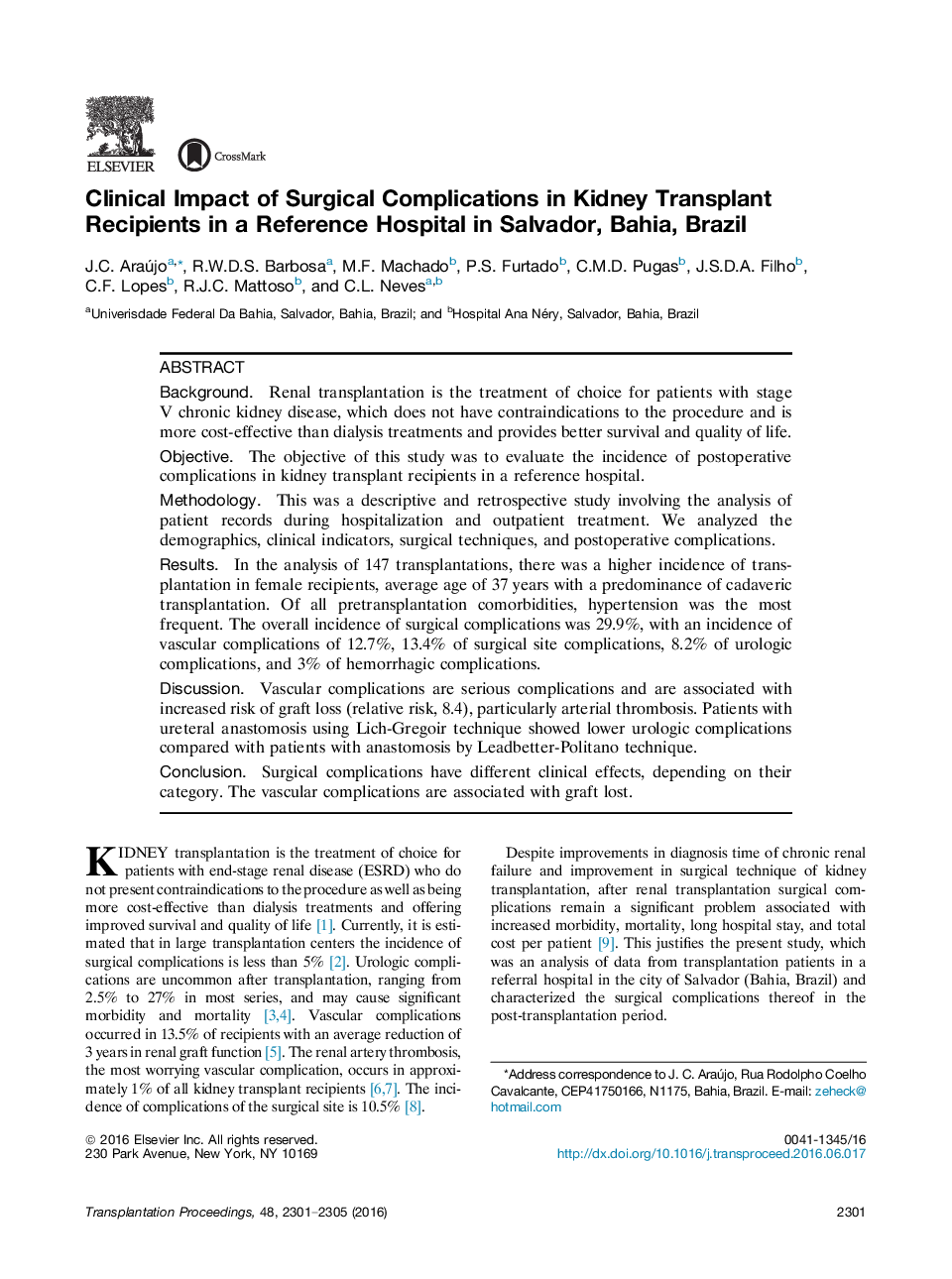| Article ID | Journal | Published Year | Pages | File Type |
|---|---|---|---|---|
| 5729353 | Transplantation Proceedings | 2016 | 5 Pages |
â¢We performed an accurate analysis of 147 kidney transplantations in a reference hospital.â¢We categorized and analyzed surgical complications: vascular, bleeding, urologic, and surgical site.â¢We investigated the influence of demographics, clinical techniques, and surgical techniques on surgical complications.
BackgroundRenal transplantation is the treatment of choice for patients with stage VÂ chronic kidney disease, which does not have contraindications to the procedure and is more cost-effective than dialysis treatments and provides better survival and quality of life.ObjectiveThe objective of this study was to evaluate the incidence of postoperative complications in kidney transplant recipients in a reference hospital.MethodologyThis was a descriptive and retrospective study involving the analysis of patient records during hospitalization and outpatient treatment. We analyzed the demographics, clinical indicators, surgical techniques, and postoperative complications.ResultsIn the analysis of 147 transplantations, there was a higher incidence of transplantation in female recipients, average age of 37 years with a predominance of cadaveric transplantation. Of all pretransplantation comorbidities, hypertension was the most frequent. The overall incidence of surgical complications was 29.9%, with an incidence of vascular complications of 12.7%, 13.4% of surgical site complications, 8.2% of urologic complications, and 3% of hemorrhagic complications.DiscussionVascular complications are serious complications and are associated with increased risk of graft loss (relative risk, 8.4), particularly arterial thrombosis. Patients with ureteral anastomosis using Lich-Gregoir technique showed lower urologic complications compared with patients with anastomosis by Leadbetter-Politano technique.ConclusionSurgical complications have different clinical effects, depending on their category. The vascular complications are associated with graft lost.
